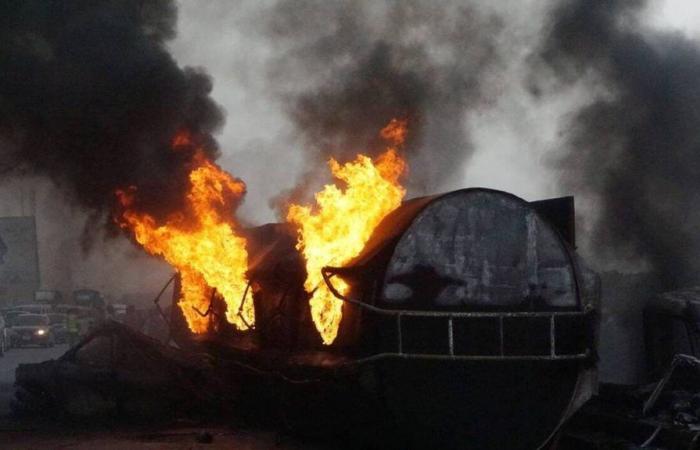The explosion of a tanker truck in northern Nigeria left at least 94 dead and around fifty injured, police announced Wednesday, the latest accident involving this type of vehicle, amid rising fuel prices. The accident took place near the town of Majiia, in Jigawa province. The driver of the tanker truck apparently lost control of his vehicle while traveling on a highway near a university, police spokesman Lawan Adam told theAgence France-Presse.
According to this spokesperson, the tanker swerved to avoid colliding with a truck in the town of Majia. After the accident, residents flocked around the vehicle to collect the fuel that had spilled onto the road and shoulders. The police who tried to dissuade them were pushed back by the crowd, the spokesperson said. So far we have confirmation of the deaths of 94 people and around 50 injured
he announced. The Nigerian Medical Association has called on doctors to urgently visit health facilities to cope with the influx of patients.
Frequent accidents
Accidents involving tanker trucks in particular are also frequent in Africa’s most populous country: the Federal Road Safety Commission (FRSC) recorded 1,531 in 2020, which caused the death of 535 people. Last September, an explosion caused by the collision between a tanker and a truck carrying passengers and livestock left at least 59 dead in the Nigerian state of Niger, according to the authorities of this country where accidents on the roads poorly maintained are common.
In addition to human and material losses, this type of accident causes environmental damage due to gasoline leaks. Deadly explosions are also regular near oil infrastructures in the south of the country, in particular because of illegal siphoning.
A context of economic crisis
Fuel has become an even more precious commodity for Nigerians due to the country’s economic crisis, the most serious in three decades. The price of gasoline has increased fivefold since the end of fuel subsidies decided last year by President Bola Ahmed Tinubu. Last week, the price of gasoline at the pump jumped again, a month after having already suffered a sharp increase.
In Lagos, the economic capital of the country, the service stations of NNPC – the national oil company – displayed the liter of PMS (premium motor spirit, gasoline) at 998 naira (0.62 dollars), against 855 naira until the day before, an increase of 17%. By early September, the NNPC had already increased prices by 45%, taking a liter of gasoline from about 610 naira to 855. Before the end of fuel subsidies, which cost the government billions of dollars a year, the Petrol sold for less than 200 naira per litre.
The 1is October, the Nigerian National Day, political and civil society organizations called for demonstrations to demand the end of hunger and poverty
and falling gasoline prices. In the end, they were little followed. On the same day, President Tinubu called once again
Nigerians to “be patient”until the economic reforms initiated by the government have a positive impact.






